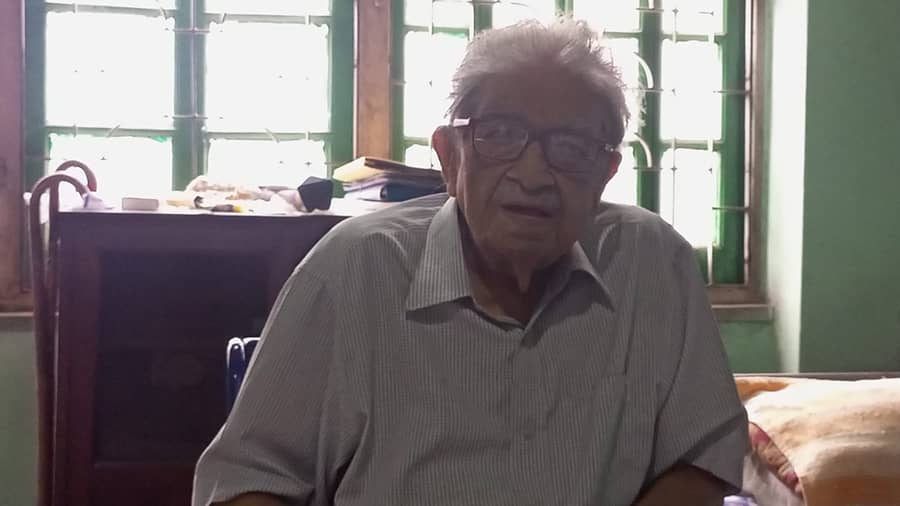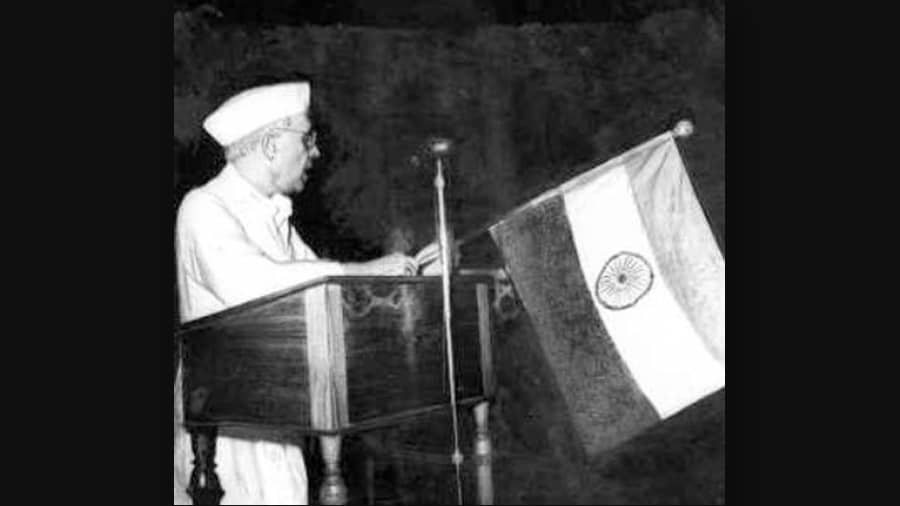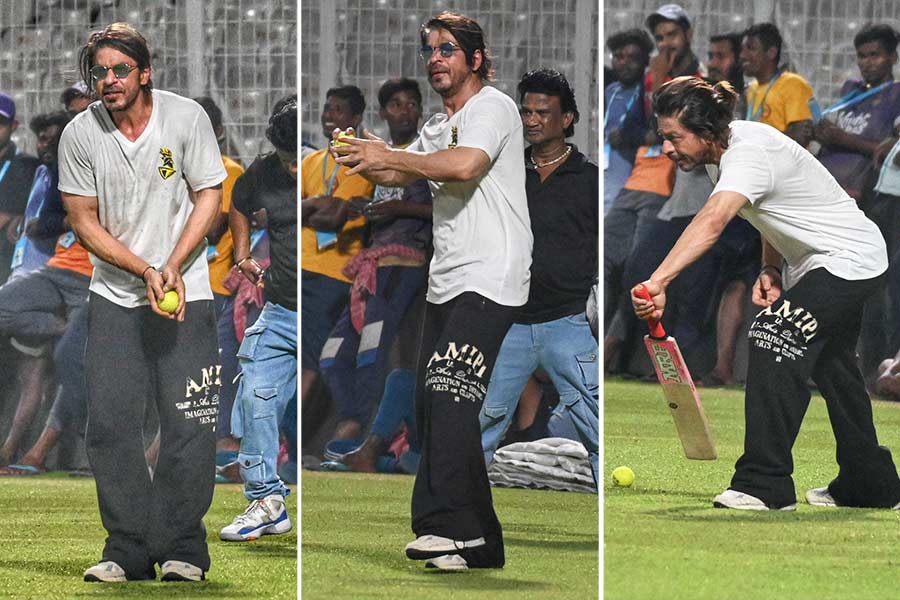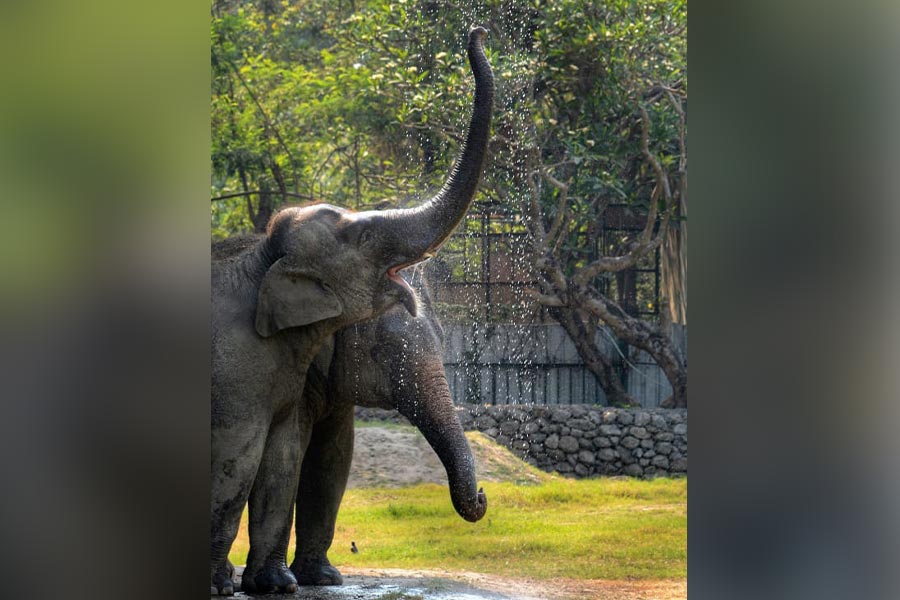A former chief justice of Calcutta and Bombay high courts, Chittatosh Mookerjee, was a young man of 18 when he witnessed India getting its freedom at the stroke of midnight on August 14-15, 1947, sitting in the Indian Parliament, then called the Constituent Assembly.
Mookerjee and his family members were invited to the historic occasion as guests of his uncle Syama Prasad Mookerjee — whom he fondly calls Mejokaka — who was to be inducted as the minister for industry and supply in India’s first Cabinet under Jawaharlal Nehru.
On the eve of India’s 76th Independence Day, Chittatosh Mookerjee, now in his 90s, recounted for My Kolkata his experience of watching India becoming Independent from up close.
“It was building up for some time and we were hearing that my uncle, Syama Prasad Mookerjee, would be a minister in sovereign India’s first ministry. Few people were taken in the ministry outside Congress and my uncle, who was with Hindu Mahasabha, was one of them. Perhaps it was advised by Gandhiji, who liked my uncle a lot. They actually met in Sodepur when Gandhiji came there in 1946,” said Mookerjee, sitting in the cosy, book-lined study of his ancestral home in Bhowanipore.
“As a result, Mejokaka wanted the family members to accompany him to Delhi, where he was to take the oath. Almost 10 to 12 of us, including him, went to Delhi in a special saloon that was attached with a train…. By that time, I had already passed out from Mitra Institution Bhowanipore and was at Presidency College,” added Mookerjee, the grandson of iconic Bengali educationist and scholar, Sir Asutosh Mookerjee.
History from the front row
“We all went and took our seats in the visiting gallery during the late evening of August 14, 1947; and history was created in front of us. Sucheta Kripalini sang Vande Mataram at the beginning and we all stood up; then there were speeches from the first President of India, Rajendra Prasad, Sarbapalli Radhakrishnan, Choudhari Khaliquzzaman, a Muslim League leader; and of course, the famous ‘Tryst with Destiny’ speech by Pandit Nehru just after midnight. All members of the Constituent Assembly also took oath as the members of India’s first Parliament. The occasion concluded with the rendering of Jana Gana Mana and Sare Jahan Se Achha. Hansa Mehta, on behalf of the country's women, presented the flag to the President,” remembered Mookerjee.
“Next day was more hectic. In the morning, Rajendra Prasadji, with Mejokaka, came to meet our family on King Edward Road, where we were staying in Delhi, after the new Cabinet took oath. In the afternoon, Nehruji, accompanied by Lady Mountbatten, unfurled the national flag on the rampart adjoining the Red Fort, coming in a horse-driven coach. We saw the event sitting on an open ground,” Mookerjee recounted.
“Finally, on the evening of August 15, there was a grand reception party being hosted by Lord and Lady Mountbatten at their house (later turned into Rashtrapati Bhavan) with lights all around. Lord and Lady Mountbatten as well as Pandit Nehru stood in a hall and people were climbing up the grand staircase and shaking hands with them. I also shook hands with Pandit Nehru and both Lord and Lady Mountbatten after standing in a queue,” said Mookerjee with a smile.
Mahatma Gandhi was not there, as he was in Bengal trying to douse the flames of a riot.
“Frankly speaking, many of us could not realise the true importance of being citizens of an independent country at that time. However, things were changing all around and British people, more visibly the officials, were gradually leaving,” added Mookerjee.
Syama Prasad Mookerjee’s role
He feels the current Indian leaders have not always been able to tread the path visualised by the founding fathers of our nation. Mookerjee observed that Syama Prasad’s pivotal role in Independence and the creation of West Bengal is hardly acknowledged; and he is sometimes unnecessarily being drawn into the present-day political quagmire. “He played a key role in Indian politics pre-Independence and post-Independence, even after resigning from the Nehru cabinet in 1950. He was never a Hindu fundamentalist as claimed by some people and only fought against the oppression of Hindus, who had become minorities in many areas during the pre-Independence period, as well as for their legitimate rights,” said Mookerjee.
He added that Syama Prasad was against any division of India and also staunchly countered the concept of sovereign Bengal or Kolkata (Calcutta, at that time) that was floated by a section of leaders because there was no guarantee that the proposed independent Bengal would not join Pakistan.
“Even during his tenure as an industry and supply minister for three years, he did a commendable job. Congress was never keen to acknowledge his role, Left parties suppressed his contribution and currently, political parties seem to be trying to reap political mileage from his works,” signed off Mookerjee.







